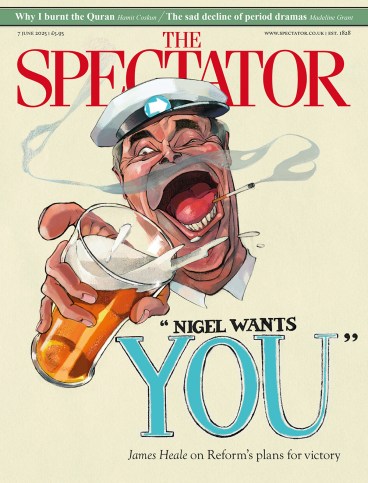
Vasili Mitrokhin was a KGB colonel smuggled out of Russia by MI6 in the early 1990s with a treasure trove of notes from the KGB’s archive. The resulting 3,500 CI reports (CI meaning counter-intelligence – information about hostile spies) identified 1,000 KGB agents around the world and were shared with 36 countries. The CIA rated it ‘the biggest CI bonanza of the post-war period’, while the FBI described as ‘the most detailed and extensive pool of CI ever received’. The story behind it was as remarkable as the haul itself.
Gordon Corera’s fluent narrative draws on many sources, including the magisterial two-volume Mitrokhin Archive compiled by the historian Christopher Andrew and Mitrokhin himself. From the start, Mitrokhin had insisted that a condition of his defection was that the world – the Russian people especially – should be able to follow what he called ‘the trail of filth’ left in their names by the Russian intelligence services. His other condition was that his family should be exfiltrated with him.
He was born in a small village in provincial Russia in 1922 and never lost his early love of wilderness and snow-covered forests. After military service he trained as an archivist, but by the end of the second world war he had become a prosecuting lawyer in Ukraine, where thousands were imprisoned and killed as the Soviet authorities reimposed communist control. Mitrokhin said little about this period of his life, confessing ‘I saw horrors’ but never revealing the extent to which he had to participate. It led to his recruitment into the overseas arm of the KGB, the First Chief Directorate, and in the early 1950s he was posted undercover to Israel.
Self-contained and socially awkward, he was not a natural for the diplomatic circuit and unlikely ever to recruit agents in the West. The KGB suffered reverses in Israel, for which he seems to have been partly blamed, as thereafter he was sent on short-term postings only. One was to Melbourne, for the 1956 Olympics, where again there were problems. On his return he was demoted, judged ‘not suitable for operational work’ and posted to a dead-end job in the archives. That was where he discovered what became his life’s mission: ‘It was working in the archives that opened my eyes and allowed me to see the truth.’

That truth was the role of Chekism, the beast at the heart of the Soviet state. On seizing power, Lenin founded the Cheka, his intelligence and security service, intended as an instrument of terror to intimidate and suppress resistance. The Chekist ethos has persisted ever since through the variously named Russian intelligence services. What Mitrokhin saw in the thousands of files in his keeping was the documented record of decades of repression and deceit – not only the recruitment of foreign spies throughout the western world but the corruption of Soviet society by a systematic and pervasive network of informers. Almost everyone, it seemed – certainly everyone of any importance – was spied upon or spied. Even Stalin had a file, mysteriously emptied.
Corera helpfully evokes the wider context of Mitrokhin’s archival journey. Married and with a son suffering from an undiagnosed medical condition, Mitrokhin was again posted abroad, this time to East Germany. He was there during the crushing of the Prague Spring of 1968, which affected him much as it did Oleg Gordievsky, another later defector. He was also influenced by the KGB’s indifference to his son’s condition, knowing that had he been more important, more effort would have been made.
In 1972 the KGB began its prolonged house move from Moscow’s notorious Lubyanka to a new HQ outside Moscow. Mitrokhin oversaw the transfer of files and, disgusted and appalled, began secretly noting the crimes and atrocities they revealed. Initially, he wrote in tiny handwriting at home or in his rural dacha, using a form of shorthand. Then he made notes at work, smuggling them out in his socks or shoes. He typed them up at his dacha, beneath which he dug holes big enough to contain milk churns full of papers, the discovery of any one of which could have got him executed. He retired in 1984, determined that somehow the world must know the full inside story of Chekist misdeeds.
How he contacted MI6, how they exfiltrated him and his family (comprising wife, wheelchair-bound son and mother-in-law), how his priceless information was processed and published and how the family was successfully resettled, is a dramatic story well told by Corera. There is humour, too, not the least being the fact that it was years before the KGB realised Mitrokhin had gone, during which they continued to pay his pension. After the death of his wife he relished his freedom to travel, taking long train journeys throughout the UK, with a good walk at the end. He died of pneumonia in 2004.








Comments